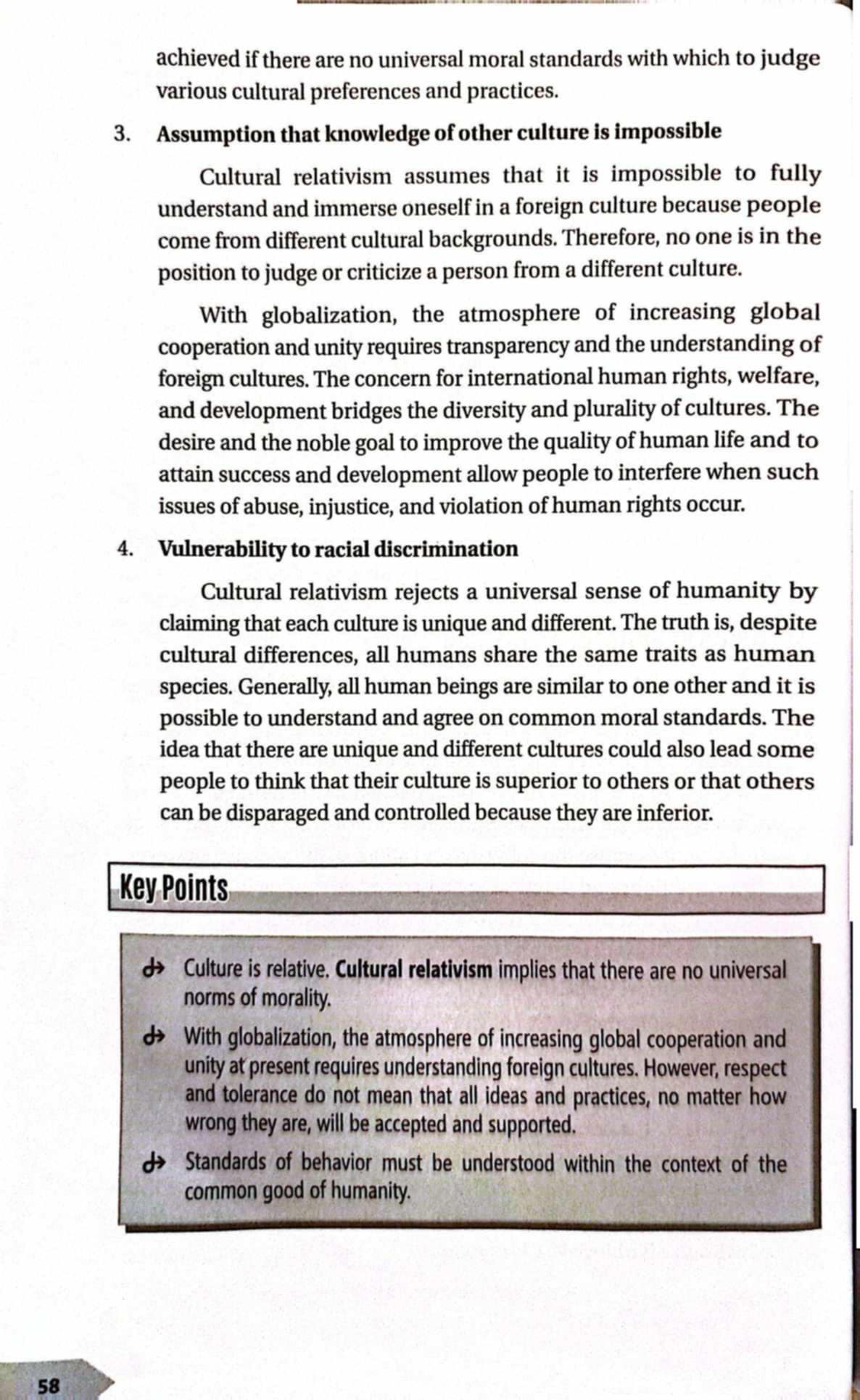
Understand the Problem
The text discusses cultural relativism and its implications, including the idea that no culture can be universally judged and the potential vulnerabilities to racial discrimination stemming from this belief. It also highlights the need for mutual understanding amidst globalization and the importance of recognizing common moral standards among humans.
Answer
Cultural relativism asserts no universal moral standards exist for judging cultural practices.
Cultural relativism asserts that there are no universal moral standards for judging cultural practices. It assumes the impossibility of fully understanding other cultures while emphasizing the need for global cooperation, tolerance, and awareness of human rights.
Answer for screen readers
Cultural relativism asserts that there are no universal moral standards for judging cultural practices. It assumes the impossibility of fully understanding other cultures while emphasizing the need for global cooperation, tolerance, and awareness of human rights.
More Information
Cultural relativism advocates for cultural understanding but acknowledges challenges in fully immersing in or judging other cultures.
Tips
Avoid assuming cultural practices can never be criticized; focus on finding common moral standards.
AI-generated content may contain errors. Please verify critical information